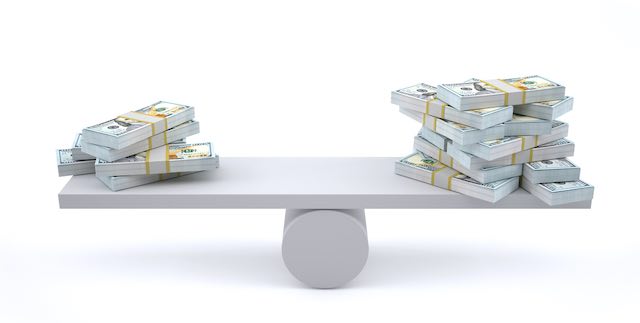I love the Roth option in the Thrift Savings Plan (TSP). It is an incredible wealth building tool. However, most feds that I talk to don’t use the Roth TSP at all.
Before I dig into some of the reasons why this might be, let’s get some of the basics straight.
The Basics
The main difference between the regular TSP and the Roth TSP is when you pay taxes.
For the regular TSP, your contributions are tax deductible and you don’t pay any taxes until you pull the money out (usually during retirement). For the Roth TSP, your contributions are not tax-deductible but you will never pay taxes on that money again (assuming you don’t pull out money when you aren’t supposed to).
Some people use a farming example to explain it. The Roth TSP is like giving a portion of your planting seed to the government but you are able to keep 100% of what the remaining seed produces. The Traditional TSP is like using all your seeds to grow crops but then giving the government a cut of what you produce at the end.
Let’s put some numbers to this example. Let’s say you have 100 seeds to plant and you decide to give 10 seeds to Uncle Sam upfront which leaves you with 90 to plant. You plant the 90 and it and doubles to produce a total of 180. Since you already paid taxes you can keep the entire 180.
Now let’s say you used the Traditional TSP instead. You were able to plant the entire 100 and it doubles to 200. You pay your 10% tax and you are left with 180.
So which one is better? In this example, both scenarios produced 180 seeds, so does it matter at all which one we pick? The short answer: Yes. The long answer: Keep reading.
When You Shouldn’t Use The Roth TSP
Here are a couple oversimplified scenarios when you probably shouldn’t use the Roth TSP.
- When your income is high and using the Roth TSP would mean excessive taxes today.
- When you are near the end of your career, your salary is relatively high, and any money that you would put in wouldn’t have much time to grow before you needed it.
Here are a few more details:
In my seed example, you paid 10% tax in both scenarios. In real life, this might not always be the case.
When taking money out of the TSP (whether traditional or Roth), you are generally already in retirement and the tax bracket that you are in during retirement may not be the same as the one you were in during your career. If you are going to be in a much lower tax bracket in retirement, it may make more sense to defer taxes (by using the Traditional TSP) until then.
But I have to mention that it is not uncommon for feds to be in exactly the same tax bracket in retirement as they were pre-retirement. For FERS employees, your retirement income is generally made up of 3 different things: your pension, Social Security, and your TSP. The vast majority of your pension is taxable in retirement and up to 85% of your Social Security is taxable as well. Most federal employees have all their retirement savings in the traditional TSP which is also 100% taxable. This means that if you’d like about the same lifestyle in retirement as you had before you retired (as most people do), you’ll probably be in the same tax bracket.
So two key questions to answer before choosing the Roth TSP or Traditional TSP is: 1) what income are you going to have in retirement and 2) into which tax bracket is that income going to put you? It may be hard to know exactly (especially because tax rates can and probably will change) where you stand, but you will gain a lot of insight just by thinking through these questions.
Who Should Use the Roth TSP
Here are a couple oversimplified scenarios when you probably should use the Roth TSP.
- When you are early in your career and your income is lower than it will be in the future.
- When you are early in your career and any money you put in would have lots of time to grow tax-free.
Having a tax-free bucket of money can often make a big difference in retirement, but again, these are oversimplified scenarios that may not apply to everyone.
I write these articles not to tell you exactly what to do, but to give you perspective and a framework to apply to your own situation. It is up to you to make sure that your decisions match your goals and take you where you want to go.





